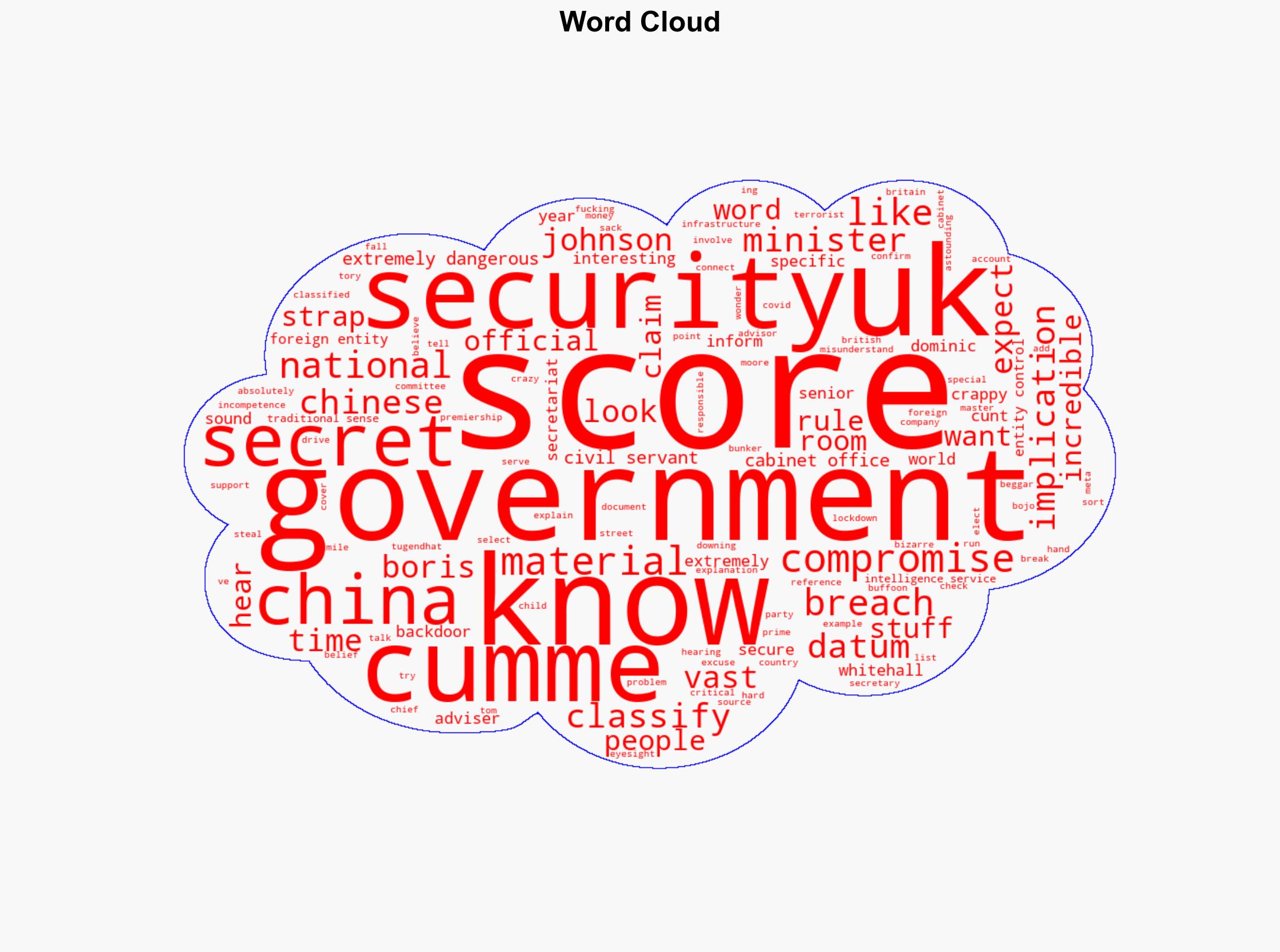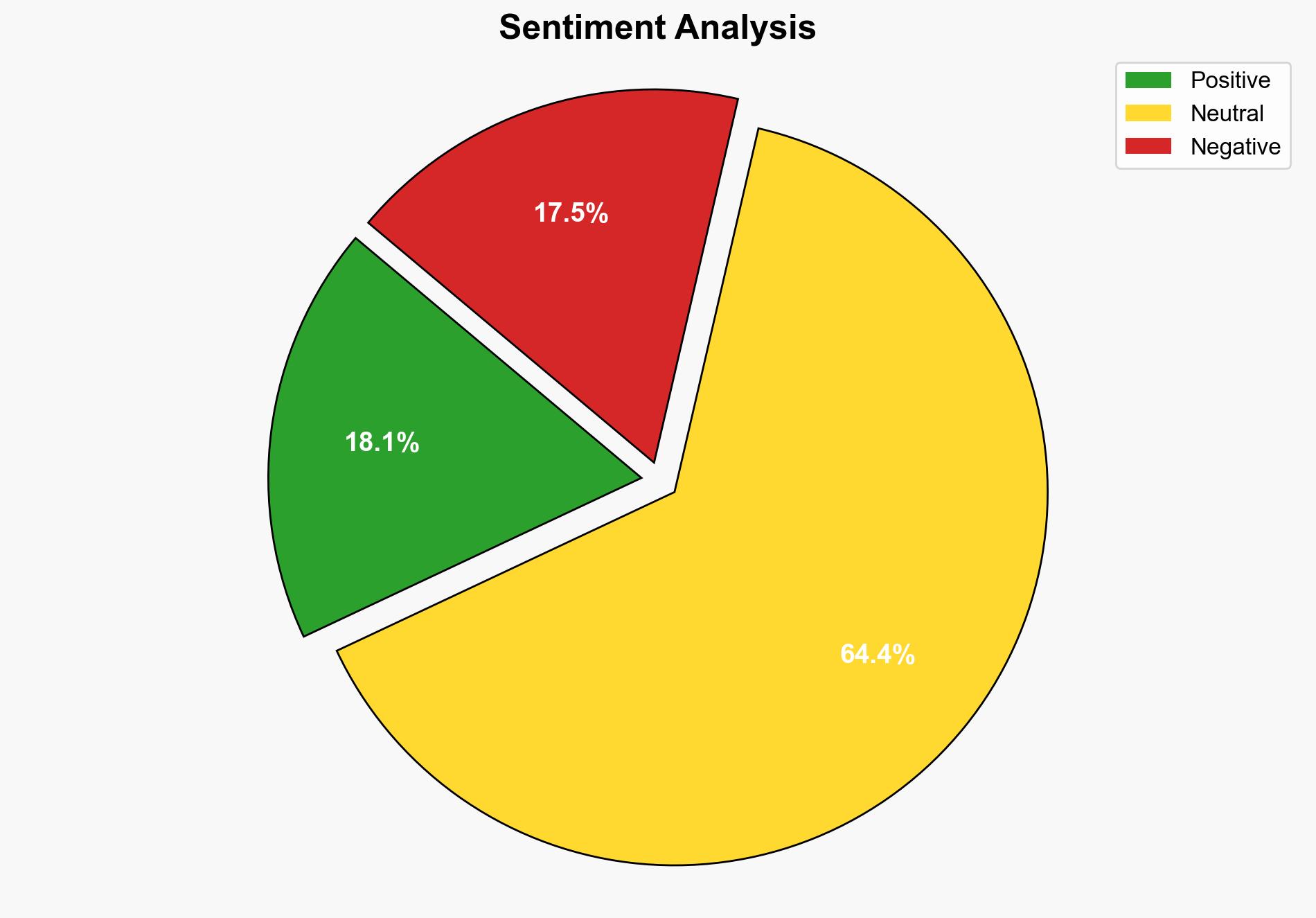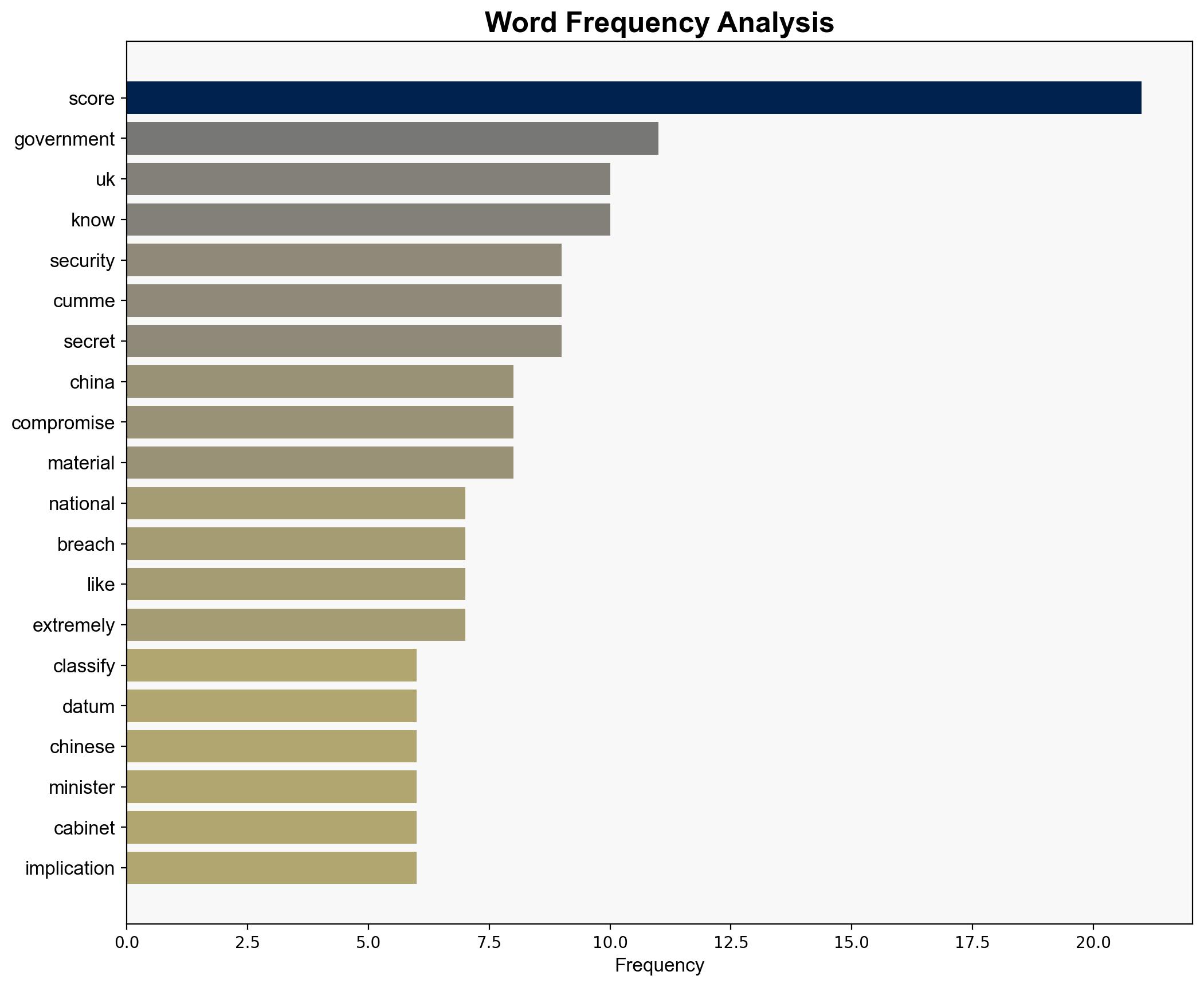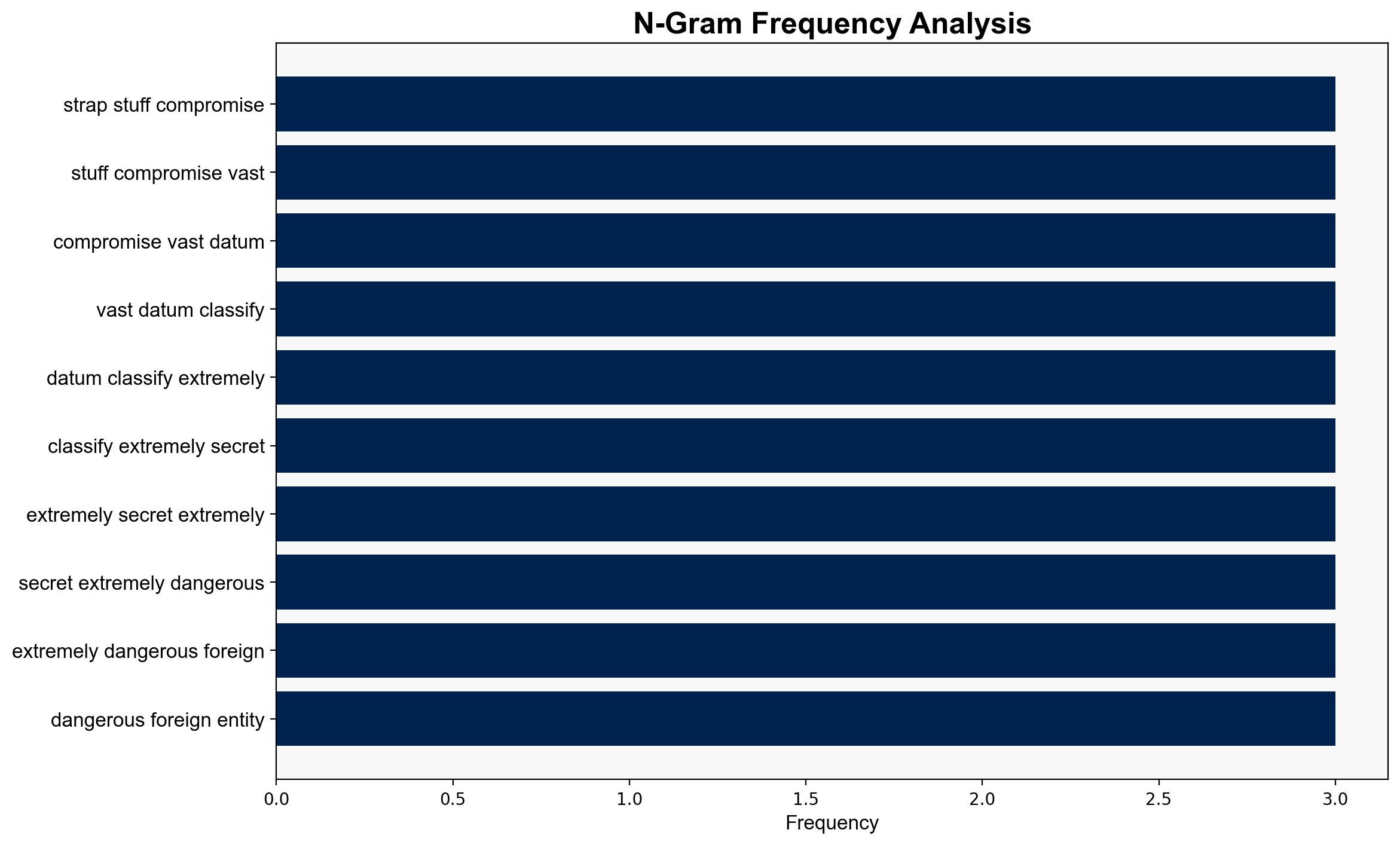China ‘Stole Vast Amounts’ of Classified UK Documents Officials Say – Slashdot.org
Published on: 2025-10-16
Intelligence Report: China ‘Stole Vast Amounts’ of Classified UK Documents Officials Say – Slashdot.org
1. BLUF (Bottom Line Up Front)
The most supported hypothesis is that China successfully infiltrated UK government data networks, compromising highly classified materials. This assessment is made with moderate confidence due to the lack of specific details and potential biases in the reporting. Recommended actions include enhancing cybersecurity protocols and conducting a thorough investigation to assess the breach’s full scope.
2. Competing Hypotheses
1. **Hypothesis A**: China infiltrated UK government data networks, compromising classified materials. This hypothesis is supported by claims from Dominic Cummings and corroborated by senior Whitehall sources, suggesting a significant breach involving highly sensitive information.
2. **Hypothesis B**: The breach is exaggerated or misrepresented, possibly for political reasons or due to miscommunication. The lack of specific details and the sensational nature of the claims could indicate a misunderstanding or deliberate distortion of the events.
Using the Analysis of Competing Hypotheses (ACH) 2.0, Hypothesis A is better supported due to the alignment of multiple sources and the involvement of high-level officials in the narrative.
3. Key Assumptions and Red Flags
– **Assumptions**: It is assumed that the sources cited are credible and that the breach’s details are accurately reported. It is also assumed that the UK government has the capability to detect such breaches accurately.
– **Red Flags**: The absence of specific details about the breach and the potential for political motivations behind the claims are significant red flags. The sensational language used in the reporting may indicate bias or exaggeration.
– **Blind Spots**: The report does not address the technical specifics of how the breach occurred or the exact nature of the compromised materials.
4. Implications and Strategic Risks
The breach could have significant implications for UK national security, potentially exposing sensitive information to a foreign power. This could lead to a loss of strategic advantage and damage to international relations. Economically, it may deter foreign investment if the UK’s cybersecurity is perceived as weak. Geopolitically, it could escalate tensions between the UK and China, affecting diplomatic and trade relations.
5. Recommendations and Outlook
- Conduct a comprehensive cybersecurity audit to identify and rectify vulnerabilities in government data networks.
- Engage in diplomatic dialogue with China to address the allegations and prevent further escalation.
- Enhance intelligence-sharing protocols with allies to strengthen collective cybersecurity measures.
- Scenario Projections:
- Best Case: Strengthened cybersecurity measures prevent future breaches, and diplomatic efforts mitigate tensions.
- Worst Case: Continued breaches lead to significant national security threats and deteriorating UK-China relations.
- Most Likely: Incremental improvements in cybersecurity with ongoing diplomatic challenges.
6. Key Individuals and Entities
– Dominic Cummings
– Boris Johnson
– Tom Tugendhat
7. Thematic Tags
national security threats, cybersecurity, counter-terrorism, regional focus





